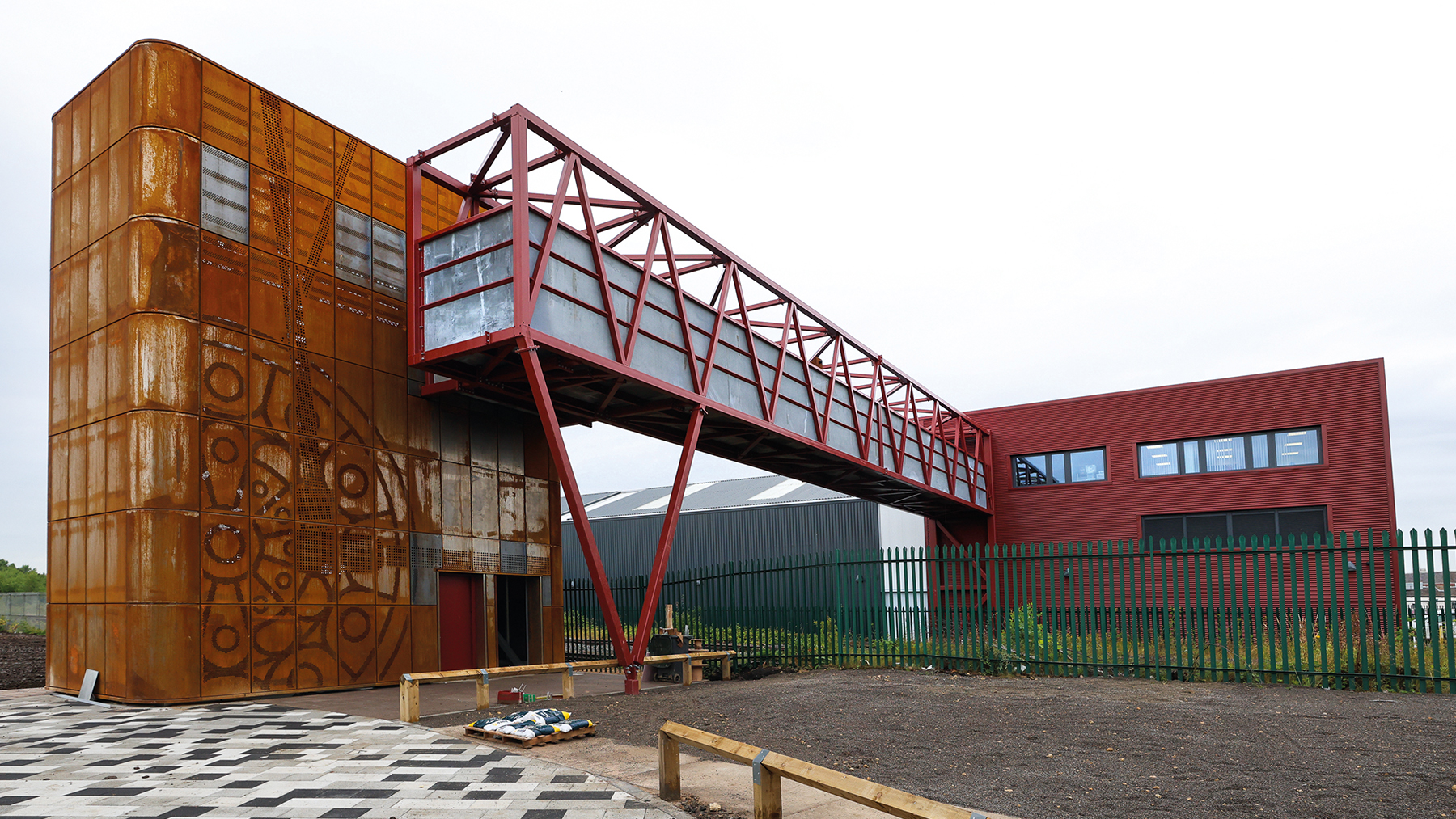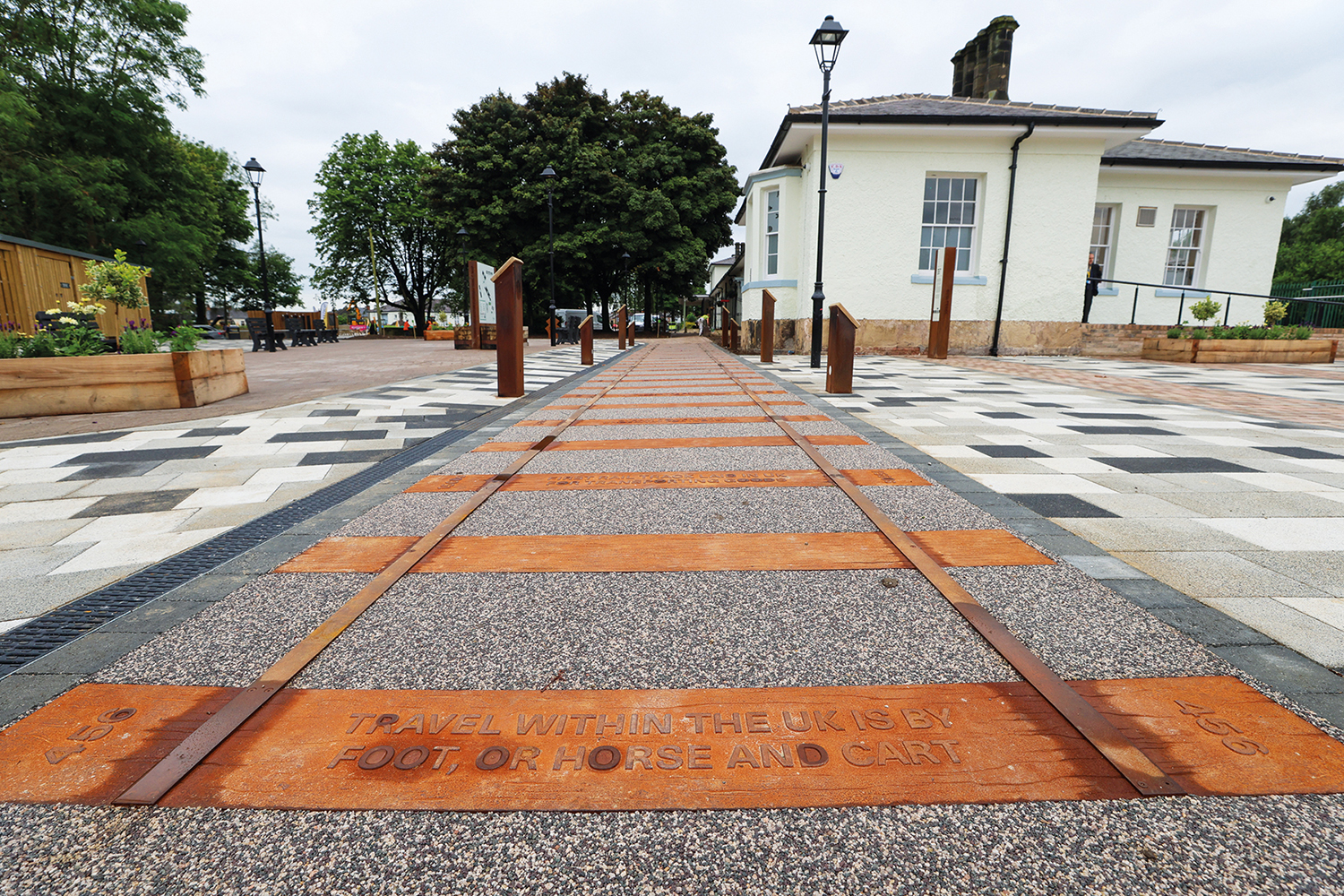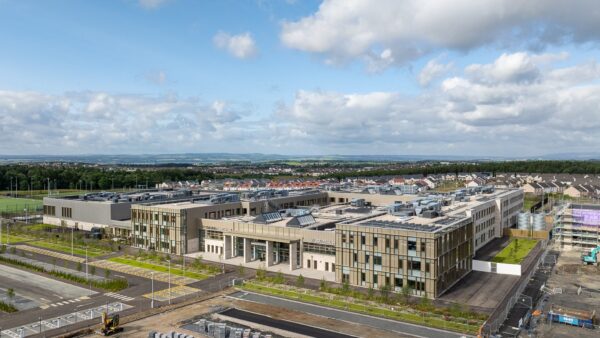Bradley Lowes MCIOB, senior building manager with Willmott Dixon, describes his team’s railway heritage transformation.

Working on Hopetown – Darlington’s newest heritage attraction – as part of the Willmott Dixon team, has been an incredible journey.
One of the biggest challenges for the team was creating seamless coordination between the vast amount of stakeholders: architects, engineers, council officials, network rail, structural engineers and exhibition designers – to ensure everyone was aligned with the vision for the project.
Despite these complexities, seeing the finished product is immensely rewarding for us all.
Willmott Dixon Hopetown team
- Glyn Jones, project manager (Overall)
- Bradley Lowes, senior building manager (1861 Building)
- Mark Todd, senior building manager (Goods Shed/Carriage Works)
- Mark Peet, senior building manager (externals)
- James Cassidy, senior building manager (North Road Station Museum)
- Chris Geritz, senior building manager (A1 Engineering Shed)
- Michael Bowman, assistant building manager (Goods Shed)
- Kev Hope, assistant building manager
- Rylie Sweeney, apprentice building manager
- Billy Collins, project surveyor
- David Starkey, design manager
- Phoebe Thompson, management trainee
- Connie Metcalf, management trainee
- Clair Dolan, document controller
Originally known as the Darlington Railway Heritage Quarter, the project was rebranded as ‘Hopetown’, named after the 19th-century railway pioneers who lived in the area.
The 3ha site, located next to North Road Station in Darlington, blends history and modern technology, offering an interactive experience that showcases the significance of the Stockton and Darlington Railway – the birthplace for the world’s first steam locomotive passenger railway, becoming the catalyst for the industrial railway revolution worldwide.
At the heart of the project was the restoration of the Grade II*-listed Goods Shed, a building that had been hidden and neglected for nearly 30 years. Once we managed to clear away decades of overgrowth, we got to work on carefully restoring the structure. We refurbished its original windows, roof, stonework and archways, maintaining its historical integrity while incorporating modern interactive exhibits inside.
Now, the Goods Shed serves as both a visitor hub and a space for people to learn about Darlington’s railway history through cutting-edge displays, including a hologauze screen and a miniature railway.
Transforming the station building
Another key part of the project was transforming the former station building, now renamed the North Road Station Museum. We worked with SPACE Architects to remove internal walls, opening up the building to reflect its original form. We replaced large external walls with lightweight glazing, reconnecting the interior with the rail tracks outside, making the building feel like a functioning station once again.
Removing the metal sheeting from the original station windows brought in natural light and gave visitors and train passengers a glimpse into the past once again.
Another key structure was the Carriage Works, a building that has been part of the site since 1853. We converted this vast, airy space into an exhibition hall and archive. The unique feature here was a 28m-long railway inspection pit that we covered in a way that allows it to be easily uncovered for special exhibits.

Willmott Dixon also created new upstairs offices for Hopetown staff and installed modern heating systems, seamlessly blending these elements into the historical structure.
In addition to the restoration work, Willmott Dixon oversaw the construction of new elements. The newly built Darlington Locomotive Works, connected by a link bridge, lets visitors watch volunteers build locomotives, while the Wagon Woods adventure park offers a family-friendly play space, merging the entire remaining heritage site together as one.
A rewarding challenge
Bringing Hopetown to life has been a rewarding challenge. It’s not just a heritage site – it’s a vibrant, modern attraction that honours Darlington’s railway history, while showcasing the talents and hard work of everyone involved. It’s a destination that bridges the past with the present, welcoming visitors to explore, learn, enjoy and celebrate the town’s heritage for many years to come.
The project was managed by Glyn Jones and was also a key experience for apprentice building manager Rylie Sweeney.
She says: “As an apprentice on Project Hopetown for two years, I gained invaluable experience working alongside a skilled team and navigating the many challenges of such a complex project.
“It was incredibly rewarding to collaborate with professionals across different disciplines and contribute to the restoration and innovation of Darlington’s heritage. Every day brought new learning opportunities and seeing the result fills me with pride.”
Comments
Comments are closed.












Nice one Brad! I would love to make a positive impact on our hometown like you have here. Definitely one to be proud of.